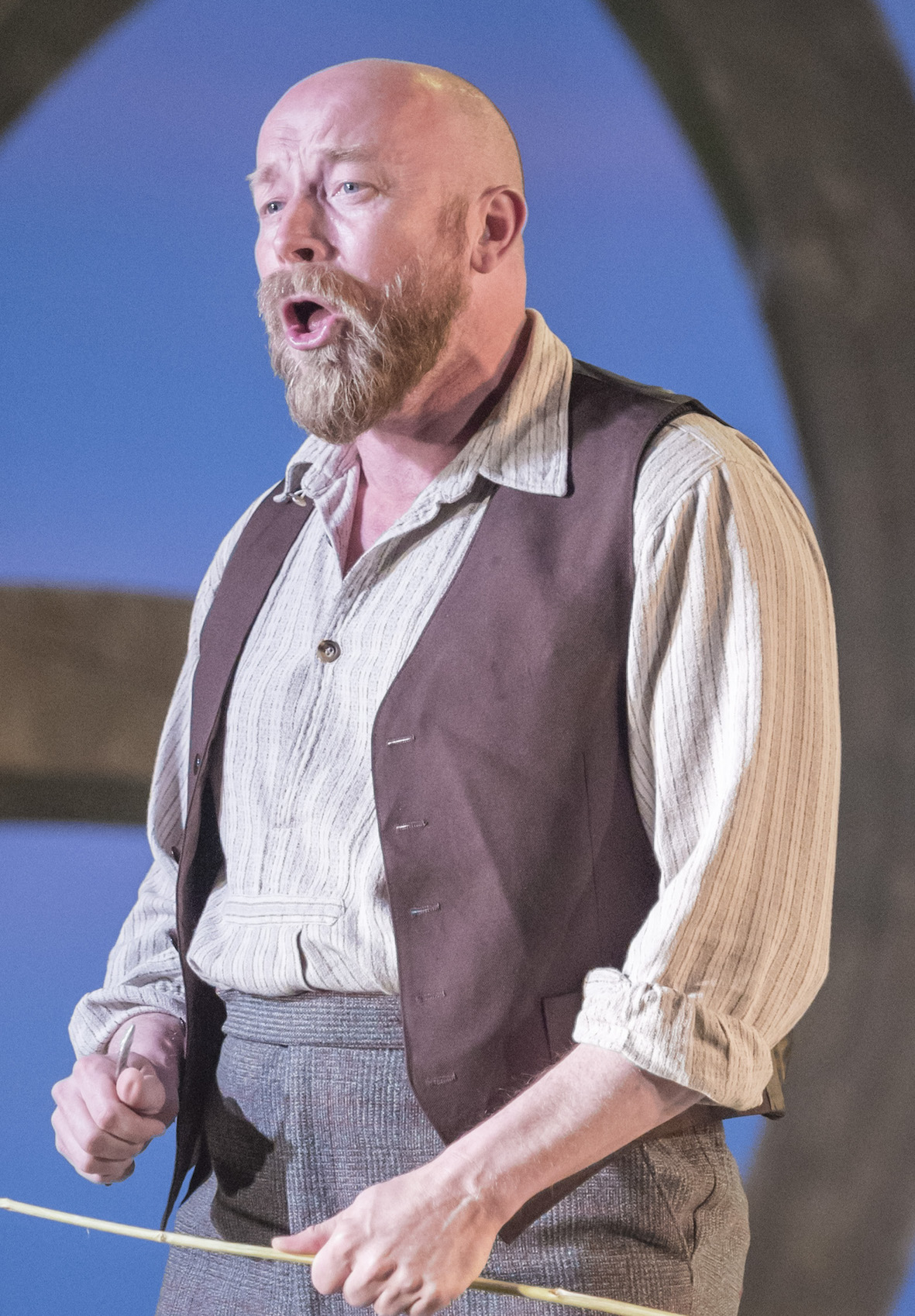Quite apart from its inherent power, Jenůfa always amazes me by the way it seems to pluck a new language out of thin air, then use it to carry one of the most moving and emotionally truthful works in the repertory. Its curiously staccato form of lyricism lays heavy demands on singers trained in Wagner or Verdi. But they usually rise to the challenge, and Richard Studer’s new production at Longborough is no exception, despite problems connected with the smallness of the stage and a certain resulting inhibition in aspects of the chorus work and movement.
Maybe I’m a bit spoilt here by David Alden’s ENO production, which uses the immense Coliseum stage so well in the first act to emphasise the distance between these supposedly blood-related characters. Studer’s first act, complete with the mill wheel that Janáček has in his music as a kind of wheel of fate, is slightly cramped by an interior platform, and the dance music –somewhat tentative and untidy musically – loses much of that wild brilliance that the composer surely intended to throw the misery of his central characters into high relief.
Her outbursts of rage and passionate remorse would send any thermometer sky-high
But as soon as the drama closes in on Jenůfa her worthless lover, Števa and Števa's more complex half-brother, Laca, things improve to the point that the final scene, in which Laca refuses to abandon the disgraced and self-immolating Jenůfa is even more unbearably moving than usual. A lot of the credit for this goes to Studer’s carefully observed character direction, done without the occasional vulgarity that Alden, even at his best, seems unable to resist.
Studer’s handling of Laca is particularly convincing, making the awkward transition from his violent abuse of Jenůfa (such a vivid expression of thwarted passion), through his helpless pleading with her after her abandonment by Števa to the closing scene where the true depth of his love gives him a completely unexpected yet perfectly believable moral stature. It’s an ending that I’m sorry to say shows up the falsehood even of works one admires, like La Bohème, a musical favourite of mine, and oddly one that ends with a version of the same melody as Jenůfa. Did Janáček know it (1896/1903)? Puccini gave up on his only mature attempt to give a tragic opera a happy ending. But Janáček’s model for that was more likely Shakespeare.
 Daniel Norman (pictured right) provides a brilliant study of Laca, slightly older than one imagines him, balding and bearded, a loser in the making but turned into a winner by circumstance and moral opportunism. Lee Bissett’s Jenůfa is no less subtly observed, with a crucially measured acceptance of Laca, whom she doesn’t love in the way she has, dangerously, loved Števa. Her face is like a moving picture of the entire drama, and vocally she is as much in command of this terrifying range of emotion as I remember she was with Katya Kabanova here a few years ago. The other major performance here is Gaynor Keeble’s as the Kostelnička. On the level of melodrama, her outbursts of rage and passionate remorse would send any thermometer sky-high; but more importantly she captures the ambivalence of this remarkable character destroyed by precisely the emotional perception and rightness that motivate her palpably wrong behaviour in murdering Jenůfa’s baby.
Daniel Norman (pictured right) provides a brilliant study of Laca, slightly older than one imagines him, balding and bearded, a loser in the making but turned into a winner by circumstance and moral opportunism. Lee Bissett’s Jenůfa is no less subtly observed, with a crucially measured acceptance of Laca, whom she doesn’t love in the way she has, dangerously, loved Števa. Her face is like a moving picture of the entire drama, and vocally she is as much in command of this terrifying range of emotion as I remember she was with Katya Kabanova here a few years ago. The other major performance here is Gaynor Keeble’s as the Kostelnička. On the level of melodrama, her outbursts of rage and passionate remorse would send any thermometer sky-high; but more importantly she captures the ambivalence of this remarkable character destroyed by precisely the emotional perception and rightness that motivate her palpably wrong behaviour in murdering Jenůfa’s baby.
Minor characters are always important in Janáček as they are in the Russian plays that clearly influenced him. Andrew Rees, also a curiously elderly Števa, manages well what always strikes me as a thankless, unredeemed part, an ordinary chap bemused by the strong feelings of complex folk. Alison Dunne is charming as the Pastuchyna, an important mediator of common humanity at the wedding, and Maria Jagusz is excellent as Grandmother Buryja, who presides over all this emotional mayhem as its historic cause. Mark Saberton as the mill foreman and Nazan Fikret as Števa's eventual bride, Karolka, contribute sharp, well-sung vignettes.
Jonathan Lyness’s musical direction is less dependable than we’ve come to expect of him, though it grows in security as the temperature rises. Scrappy ensemble in the first act dances was probably due to poor offstage communication; but his tempi hereabouts are sluggish and the dances fail to vibrate. Later it all falls into place, and by the end all is forgiven.














Add comment